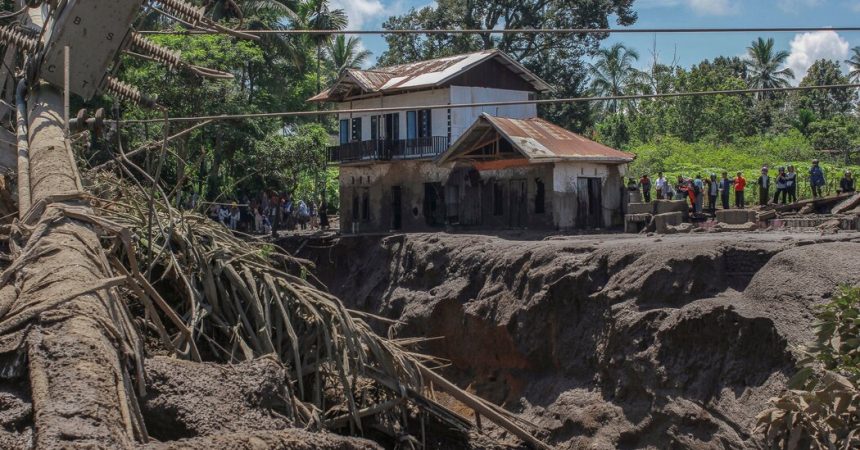Heavy rain in Indonesia over the weekend triggered flash flooding and sent torrents of volcanic matter coursing down a volcano and into towns, killing at least 37 people, officials said.
Hours of rain on Saturday night carried volcanic rock and ash down Mount Marapi, an active volcano on the island of Sumatra, and into homes in nearby towns. Those mudslides are known as lahars in Indonesian, which translates to cold lava. The rain also caused a nearby river to overflow.
A moving lahar looks like a “roiling slurry of wet concrete,” and a large one can crush, bury or carry away almost anything in its path, including buildings, bridges and roads, according to the United States Geological Survey.
Lahars, which can also be triggered by landslides and volcanic eruptions that melt snow and ice, can quickly grow in size and speed as they rush down volcanoes, according to the U.S. agency’s website. Some grow to more than 10 times their original size, incorporating more debris and water as they move downhill, and can exceed speeds of 120 miles per hour.
Four areas in western Sumatra sustained severe damage over the weekend, with nearly 200 houses inundated, according to Indonesia’s disaster management agency. In one area, Agam, 159 people were evacuated, the agency said. Some of the flooding left mud deposits high enough to reach an adult’s calves, it said.
By Sunday night, 37 residents had been killed and 17 others were missing, the agency said.






